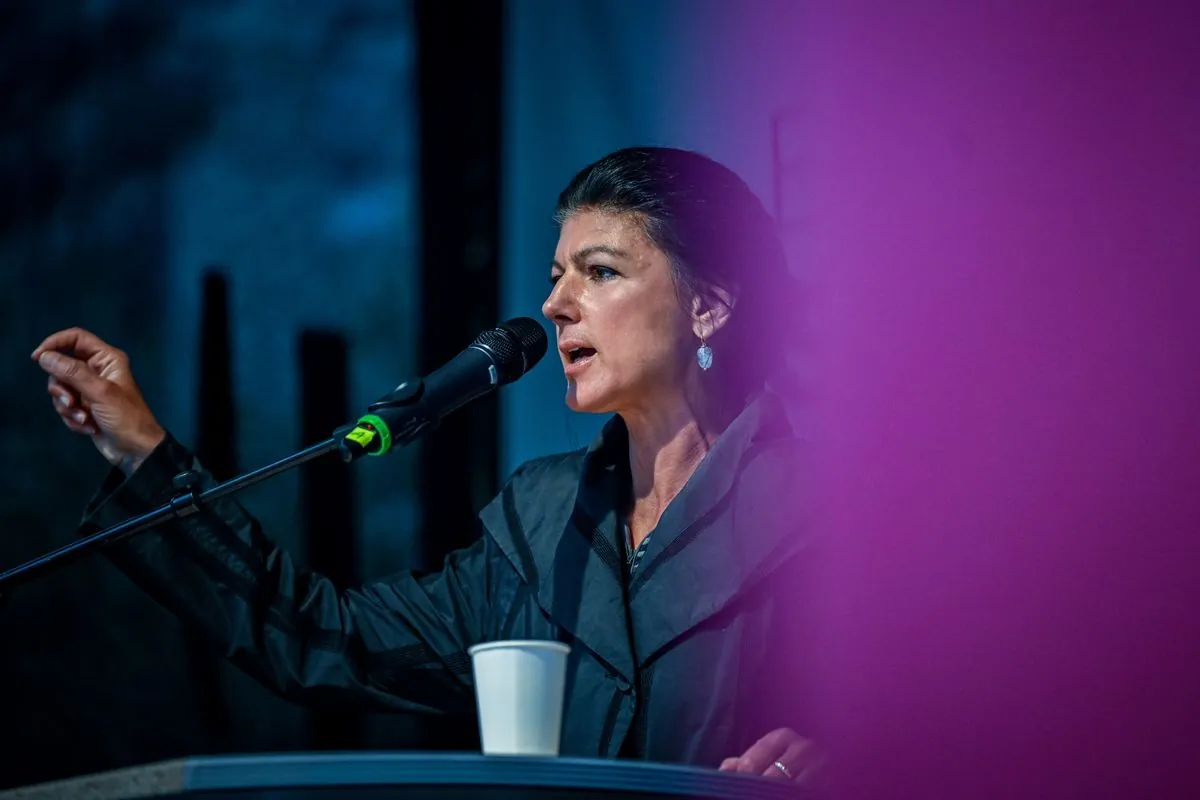On August 29, 2024, Sahra Wagenknecht, the leader of the Sahra Wagenknecht Alliance (BSW), encountered an unexpected incident during a campaign event in Thuringia, Germany. An unidentified middle-aged man attempted to spray pink paint at her while she was addressing the audience. Fortunately, Wagenknecht managed to avoid the paint, and security personnel swiftly apprehended the assailant.
In response to the attack, Wagenknecht displayed resilience, stating:
"It is noticeable that some people don't want us. That speaks for us. Don't let yourself be intimidated - we won't let ourselves be intimidated."
The BSW, established in January 2024, has quickly gained traction in German politics. The party's platform combines social conservatism with left-wing economic policies, aiming to address what they perceive as a political impasse in the country. Wagenknecht has advocated for controversial positions, including the cessation of military aid to Ukraine and stricter immigration policies.
The incident occurred just days before the Thuringia state parliamentary elections, scheduled for September 1, 2024, where the BSW is projected to secure third place. This performance would be significant for a party formed only eight months ago.
The BSW's policy promises include:
- Increased pensions
- Improved education system
- Regulated immigration while maintaining refugee protections
- Better employment opportunities
- Reduced bureaucratic burden on employers
These proposals reflect Germany's ongoing challenges, such as an aging population straining the pension system and the need for educational reforms to maintain the country's competitive edge in vocational training.
The paint attack highlights the growing concerns about political violence and intimidation in democracies. Germany, with its strict laws on political extremism and hate speech, continues to grapple with maintaining open political discourse while ensuring the safety of public figures.
As the BSW gains prominence, it positions itself as an alternative to the far-right Alternative for Germany (AfD) party, which has seen a rise in recent years. Wagenknecht's approach of blending traditionally left and right-wing policies aims to appeal to voters dissatisfied with the current political landscape.
The upcoming Thuringia elections will serve as a crucial test for the BSW's political strategy and its ability to reshape German politics. As the country continues to navigate complex issues such as immigration, economic policies, and international relations, the BSW's performance may indicate a shift in the political preferences of German voters.
